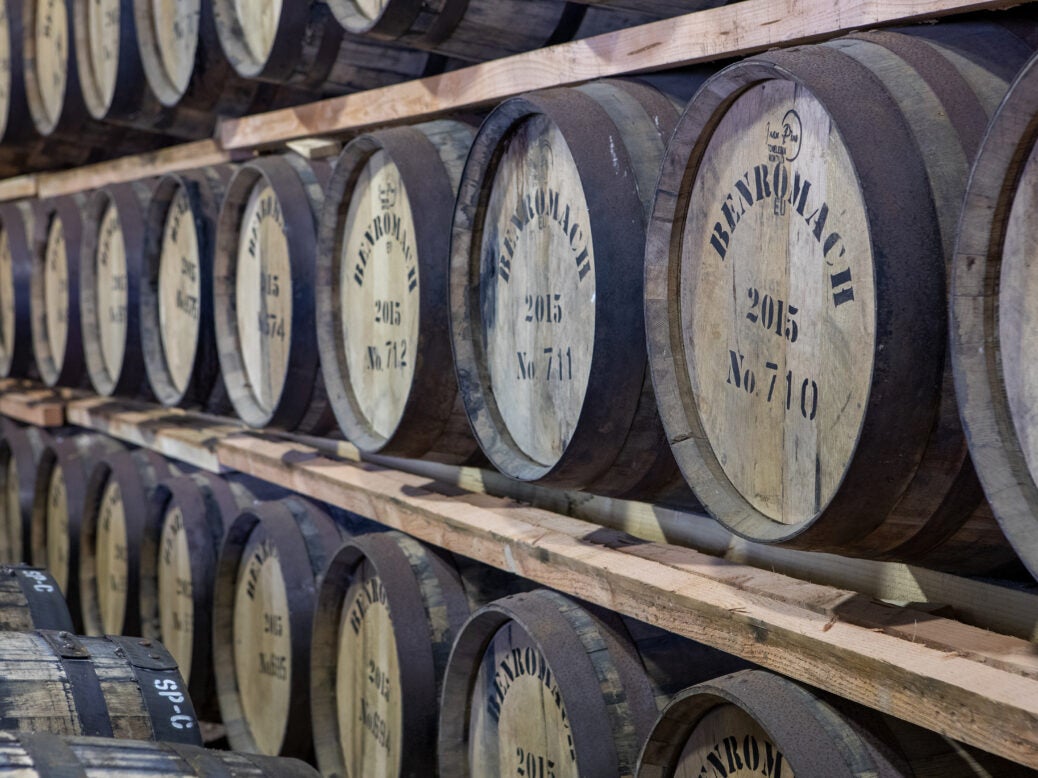
Whisky drinkers are becoming increasingly hard to please. Only a select few maltsters can meet such high standards, says Jack Croxford-Scott
There was probably once was a time when offering a houseguest a whisky would have been met with unqualified gratitude.
Then, things changed. Blended whisky fell out of fashion. Only Single Malts – whiskies distilled only from barley from a single, named distillery – would do. The most fastidious of drinkers are going further still and seeking out certified organic whisky.
The challenge of organic
Whilst the whisky trade has more or less kept pace with the demand for premium Single Malts, it is unlikely to go organic overnight. It’s easy to forget that the industry recently witnessed a brutal consolidation which saw many distilleries fold. Some elements of production were centralised and overengineered in pursuit of efficiencies.
Much of the barley is sourced from a small number of maltsters, very few of which are able to source the requisite quantities of non-treated barley. Organic grain has a much lower yield (the amount of alcohol which can be distilled from each batch) than those treated with agrichemicals.
Then there are the rules and guidelines set by whisky certification bodies. Going organic requires barley farmers to scrap artificial fertilisers in favour of more natural practices. Nitrogen, key to crop growth, has to be added, not by chemicals but by planting clover. Crops are planted in wider rows to enhance ventilation and stave off disease. The latter is normally dealt with by agrichemicals.
For the corporates that control the whisky industry, this is hardly a compelling commercial proposition. Some independent distillers, however, have embraced the trend. They’re happy to do things unconventionally if it means greater flavour and a better story. The chance to take a stance opposite the multinationals which run the trade carries some appeal, too.
Three of the best organic whiskies:
Waterford Gaia 1.1
The man behind new Irish distillery Waterford is Mark Reynier. He is best known for his turnaround of Scotch distillery Bruichladdich, from a crumbling site to a cult single malt.
Waterford Distillery in the south-east of Ireland is his latest endeavour. A continuation of Reynier’s crusade to prove that terroir is as applicable to whisky as it is to wine, Waterford was quick to distill with organic grain. Reyner’s team are the first in decades to distill with Irish grown, organic barley.
Waterford’s organic expressions bear the ‘Gaia’ moniker. The inaugural release was matured in an range of casks, including some which previously held Vin Doux Naturel, a lightly fortified French wine. This gives this dram its sweet, drying finish.
Waterford Gaia 1.1 Organic Irish Single Malt Whisky £76.95; royalmilewhiskies.com
Benromach Contrasts: Organic
Owned by spirits merchants Gordon & MacPhail, Benromach produced the first organic single malt whisky to be certified as such by the Soil Association.
Spirit distilled from locally grown organic barley is matured in new casks assembled by the local cooperage. Working with brand new casks is almost unheard of. Second hand casks once filled with American bourbon or Spanish sherry are favoured for the flavours and colour which they give the spirit. But as the previous contents cannot be certified as organic, ‘virgin’ wood is used instead.
The end dram is quite something. The fresh American oak casks provide a much more intense maturation than re-fill barrels. They result in a much woodier, richer style than other whiskies in the Benromach stable.
Benromach Contrasts: Organic Single Malt Scotch Whisky £49.99; benromach.com
Nc’nean Batch #3
Even by Scottish standards, the Morvern peninsula on the coast of the Inner Hebrides is remote. To get to Nc’nean, you can drive, catch the ferry from the mainland or take a private boat. Nc’nean has its own moorings in a bay below the distillery.
Being situated in this part of the world means that Nc’nean has little choice but to be self-sustaining. A biomass boiler fed with local woodchip fires the copper stills. Water is recycled. Pot-ale – the liquid left over from each distillation – is used to fertilise fields. Organic, Scottish-grown grain is exclusively used to distill the whisky.
The spirit may be young (Nc’nean’s current releases barely surpass the three year minimum required to call it Scotch), but it’s mature in profile. Most of the casks are red wine barrels which have had their wine-soaked staves shaved down to expose virgin wood. Then, they are toasted by fire to caramelise the sugars in the oak, which maximises flavour extraction.
The result is an earthy and dry dram with none of the astringency which is commonly found in young spirit. An incredibly mature whisky made properly.
Nc’nean Organic Single Malt Scotch Whisky £49.95; ncnean.com
Read more:
Bordeaux Index on why wine investors are toasting a successful year
Review: Kitty Fisher’s’ welsh rarebit – ‘gooey decadence’ in Mayfair
Time to invest in bourbon? Jack Daniel’s is to start selling whiskey by the barrel










